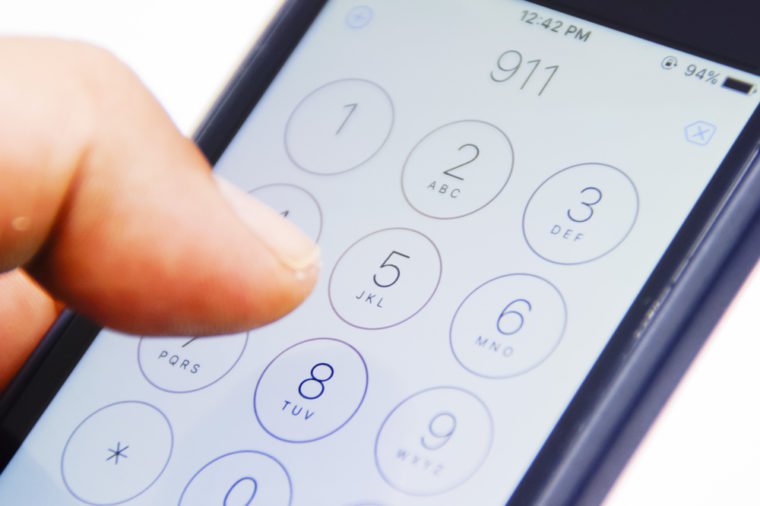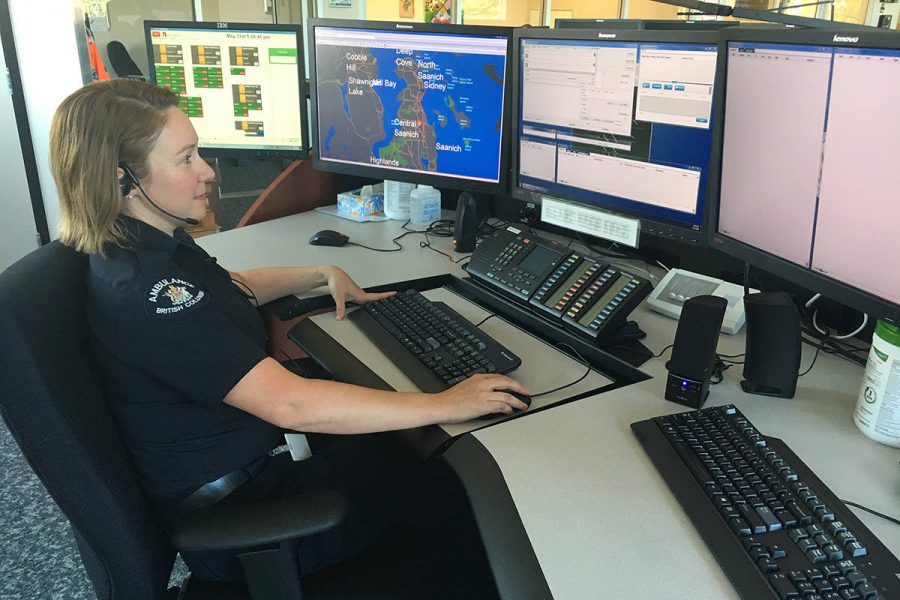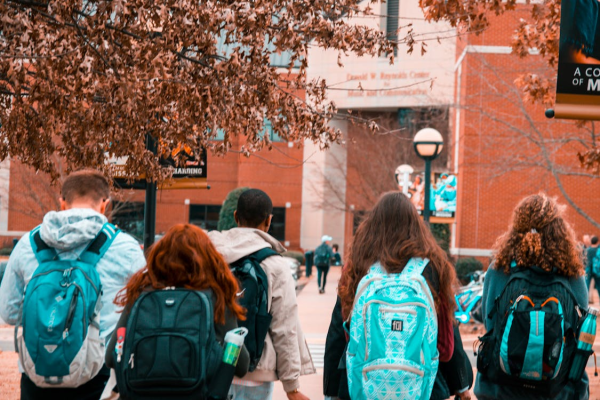When and How to Call 911
911 dispatcher Natalie Rumsby sits at her desk in Victoria where on April 24 she answered a call
In the U.S alone, the leading cause of death in teenagers is accidents. In addition, an average of nine teens between 16 and 19 are killed every day from motor vehicle injuries. Teenagers should know how to call emergency services in case these things happens.
First, before calling, make sure you are safe. For instance, if your house is being broken into, make sure you’re hidden and away from harm before calling. Even if you’re not sure about calling, call 911 just in case. You can also text 911, which was created as assistance for those who might be hearing impaired or have speech impediments and can be helpful to anyone who needs it. It isn’t just for disability though. Texting 911 can be useful in instances like domestic abuse or home intrusion, as a phone call could put the victim at risk.

You should only call 911 in the case of serious emergencies (fire, crime/possible crime, car crashes, the event in which someone has passed out or is turning blue). You should NOT call 911 if there’s a power outage, an issue with paying for tickets, or a minor injury or health problem. For example, you should not call 911 if your cat ate your bacon, as that is not an emergency. However, if a buffalo falls on you, you should definitely call 911 if possible. Calling 911 for obvious non-emergencies can result in a fine of $1,000 and up to a year in county jail. The crime becomes a felony if someone is injured. Prank calls to 911 can lead to the same punishment because you’re taking away resources from actual emergencies.
When calling 911, it is important to know your location. Look for street signs or an address. If you can, try to find landmarks. You also need to answer all of the dispatcher’s questions. They will ask a lot of questions but your answers will help them determine what kind of help you need. Listen carefully, and if your dispatcher gives you directions, follow them. They are trained to help keep you safe and aid others if needed while help is on the way. Finally, never hang up on them unless they instruct you to do so.
Calling 911 might seem terrifying, and the situations leading to a call can be. It’s important that everyone knows how to call them, so that it isn’t another thing to panic over.

A senior at Taft and the Editor in Chief for the Taft Tribune, keen book reader and movie watcher.







